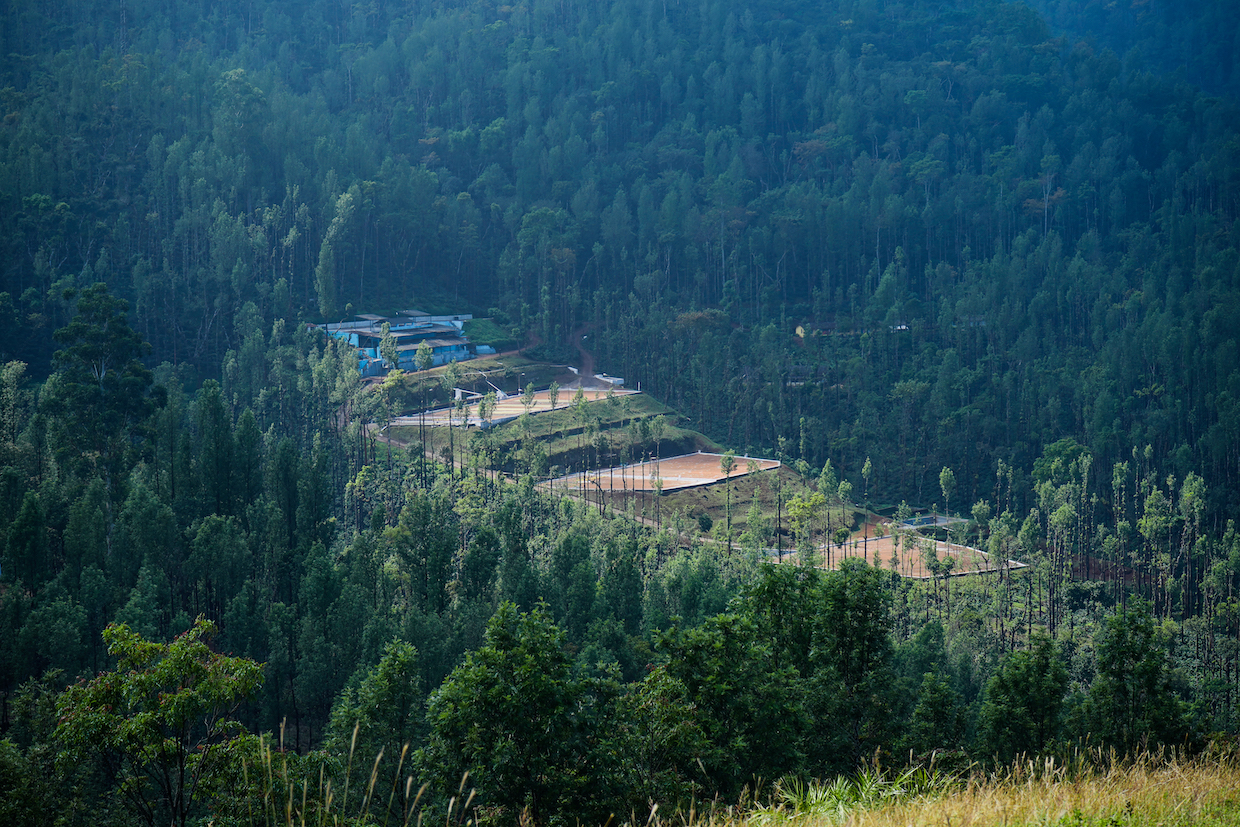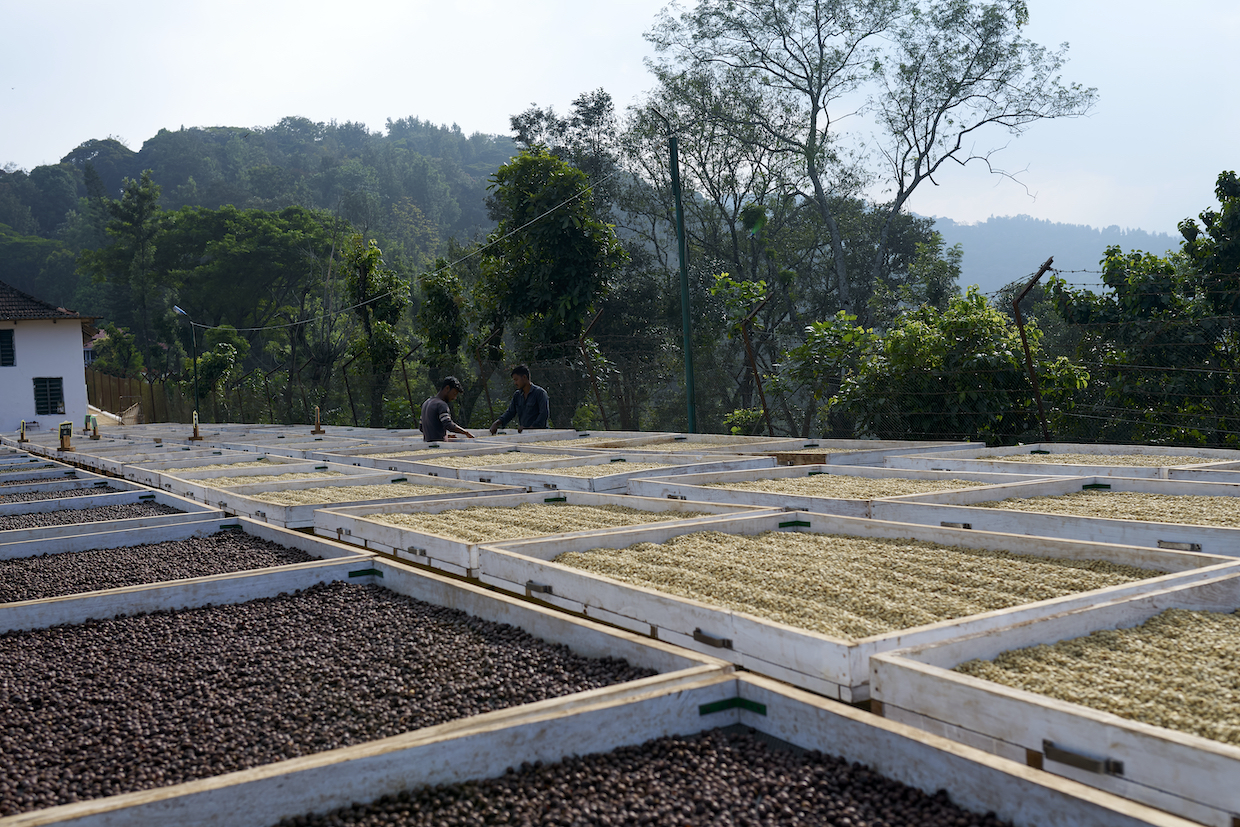
Ryana Kuruvilla, head of people and culture, Kelachandra Coffee. All images courtesy of Kelachandra Coffee.
Representing the seventh generation of family members as part of the Kelachandra agricultural group in India, Ryana Kuruvilla keeps one foot moving toward the future while the other remains grounded in the past.
“I have always been drawn to the intersection of business, strategy, and legacy,” Kuruvilla, the head of people and culture at Kelachandra Coffee, recently told Daily Coffee News.
A 30-year-old business division of the Kelachandra Group, which dates back to 1786, Kelachandra Coffee has expanded from a single 1,000-acre coffee estate to span more than 6,300 acres of coffee production area across at least 15 estates in Karnataka and Kerala.
While Kuruvilla is helping to lead the coffee venture into its next chapter, her own path into coffee has not been linear. After growing up in India, she moved to the U.S. and earned an economics degree at UCLA. Then she relocated to London, England, where she earned a master’s degree in real estate development.
It was during the COVID-19 pandemic that a full-circle connection took place, bringing Kuruvilla back to the coffee estates she grew up near as the daughter of Kelachandra Coffee Vice Chairman K.J. Kuruvilla and niece of Chairman K.J. George.
“Even during the lockdown, I spent most of my time off-grid at the estate, which deepened my understanding of coffee cultivation,” Kuruvilla said. “The extended time there gave me first-hand experience in every stage of production — from nurturing coffee saplings in the nursery to processing the final green bean ready for sale. This exposure has given me invaluable insights into the craft, reinforcing my passion for both the industry and its future.”
As Kuruvilla looks to Kelachandra Coffee’s future, she said the company is simultaneously embracing new consumer-driven trends, particularly in the specialty coffee segment, while embracing a heritage of sustainable coffee production. She is also deeply passionate about promoting Indian specialty coffee on the global stage.
“This increased [domestic and international] interest in Indian coffee also bodes well for Indian producers,” Kuruvilla said. “[They] have such a beautiful story to share about the harmonious relationship between nature and the coffee they grow, and I hope we can bring these stories to the world.”
The company has achieved Rainforest Alliance certification for all its estates, while also meeting the requirements of the new European Union deforestation-free law (EUDR). Said Kuruvilla, “Moreover, we’ve increased investments in both our people and processing, to strengthen our direct trade relationships.”
Here’s more from DCN’s recent interview with Ryana Kuruvilla…
What about coffee excites you most?
For me, coffee is more than just a drink. It’s a craft, a culture, and a connection to both people and place. What excites me most is how every cup tells a story, from the terroir and processing methods to the care taken at each stage of production. I’m also especially passionate about innovation in coffee, improving sustainability practices, and elevating Indian coffee on the global stage.
What about coffee troubles you most?
What troubles me most about coffee is climate change. I’ve seen how changing weather patterns affect everything from flowering cycles to harvest quality. Unseasonal rains, prolonged droughts, and rising temperatures make maintaining consistency challenging. At Kelachandra Coffee, we’re adapting by focusing on R&D, using the best machinery available on the market and sustainable practices, such as investing in shade-grown methods, improving soil health and experimenting with processing techniques that reduce water consumption.
Coffee is resilient, and through research, better policies, and sustainable innovations, we can ensure its future.
What would you be doing if it weren’t for coffee?
If it weren’t for coffee, I know my love for nature would probably pull me back to something deeply connected to the land, whether in sustainable development, conservation, or agribusiness.
Comments? Questions? News to share? Contact DCN’s editors here. For all the latest coffee industry news, subscribe to the DCN newsletter.
Daria Toptygina
Daria Toptygina is a freelance writer, avid coffee lover and social media manager of Daily Coffee News by Roast Magazine.








Comment